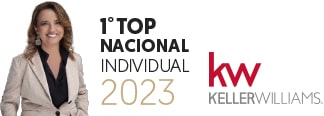The real estate market is a crucial pillar for the economy and society. However, as in any other sector, there are professionals who demonstrate competence and others who fail to meet expectations. It is essential to know how to identify a bad real estate agent before committing to a mediation contract, avoiding possible future regrets.
In this article, we will explore how to identify an ineffective real estate consultant, their poor practices and the consequences for the industry, colleagues, landlords and clients. In addition, we will cover how to avoid such professionals.
We will also discuss the lack of professional ethics, the rules for entering the activity and the lack of regulation in relation to the real estate consultant activity, comparing it with the reality in other European and North American countries.
10 ways to spot an ineffective real estate consultant
An ineffective real estate consultant can be identified by several practices. Here are 10 practices that illustrate the "modus operandi" of a dishonest or incompetent consultant:
1- Misleading Advertising
The use of incorrect or exaggerated information in the initial approach, with the aim of soliciting a property or persuading the owner to change real estate, is one of the most common practices:
- " I have a client interested in your home " - This is one of the most commonly used phrases and often indicates deceptive practices. With this approach, the dishonest consultant takes advantage of the owner's good faith and his natural desire to sell the house to convince him to sign a mediation contract. After signing, the supposed client "miraculously" loses interest, or, if necessary, the consultant introduces someone from his personal circle or a poorly qualified client to fake a visit.
- " I have clients on a waiting list for your area " - This is another emblematic phrase that many have seen on flyers or letters that clog our mailboxes. If you really want to verify the veracity of these consultants' claims, try searching their website or social media. However, a consultant who actually has clients on hold does not resort to this strategy.
- " Seeing many houses in your neighborhood " - Maybe true, maybe not, but it is the consultant's responsibility to prove that it is true and that the sale was really his responsibility.Often, they end up admitting that it wasn't really a sale, but an attempt to raise a property, or a listing that was unsuccessful, etc.
Many of these promises fall apart after signing the Mediation Agreement. The goal is simply to raise as much as possible. Many consultants are trained with this strategy in mind: "they need to sell 2 properties per month" because this way they will be able to "sell at least 1 to 2 properties per year". In other words, each property raised primarily serves a statistical purpose instead of being treated with the care, investment and attention it deserves.
2- Defame colleagues
Whether in this or any other professional activity, there are good and bad professionals, and things don't always go as planned. This is normal. However, using partial truths or lies to defame a competing colleague and thus "stealing" a colleague's property is a very revealing indicator of the type of professional we have in front of us. Throwing false accusations is easy, as the unscrupulous adviser assumes the owner will lack the courage to report the conversation to the targeted adviser. This maledicence reveals the character of this professional; if he acts like that with others, imagine what he will do behind our backs!
3- Lack of a clear and objective Value Proposition
Nowadays, investment in marketing is one of the indicators that allow evaluating the work of a real estate consultant. Promoting a property on national or international portals is very expensive. Only the best can do it. That's enough? No, but it is an important condition to differentiate efficient consultants from the rest. Request data regarding this consultant's investment in marketing. Try to analyze the consultant's digital presence, on the platforms on which he promotes his portfolio, and whether the properties are highlighted or not.
4- Insufficient knowledge of the market
A real estate consultant poorly informed about the market and its trends runs the risk of providing an inaccurate analysis, compromising the interests of the owner. Frequently, these consultants present very general market studies, based on prices per square meter in the parish or municipality, neglecting geographic differences and the particularities of the property or location.They are often unaware of the area in question, because they have never collected or carried out even a real estate transaction near the property in question.
5- Disproportionate commissions
A clear indication of a lack of professionalism is the charging of excessively high or low commissions, which are not in line with the service expectations of the owner or buyer, nor with the values practiced in the sector. The quality of the service must be proportional to the commission charged. If the commission is surprisingly low (2%, 3% or even a low fixed amount), there is likely to be no significant investment from the agency or consultant. If it exceeds 5%, it must be accompanied by a value proposition that incorporates a robust strategy to justify that value.
6- Ineffective Negotiation
The consultant who presents difficulties in communicating with the owner (lack of focus, weak argumentation, low emotional intelligence, lack of empathy, etc.) tends to replicate these failures in negotiating with clients, compromising the conclusion of a good agreement both for the owner and for the buyer.
7- Absence of an effective network of contacts
Non-Top Producer real estate agents may have difficulty finding buyers for their home due to the lack of an efficient and reliable network of contacts. In the real estate market, the times when everything was resolved behind closed doors are over. In the past, the consultant belonged to an agency with proximity spaces, the clients went to it and the consultant kept this list of potential interested parties. Currently, the digital medium has replaced physical spaces, interested parties prefer to search on the internet and on specialized platforms. Therefore, consultants who focus more on digital have a wider network of contacts. In addition, if they have experience in the area and have real estate in their portfolio or transactions carried out in the vicinity of their property, they will have a recent list of interested parties.
8- Lack of transparency
Bad quality real estate consultants can hide important information, such as the existence of debts or charges associated with the property, missing or incorrect documentation, serious structural problems, legal issues, among others, thus jeopardizing the buying or selling process. This lack of transparency extends to everything else: they "invent" interested parties and leads that never existed, they lie to owners and customers, hide purchase proposals from owners " in case of sharing a commission", etc. Sometimes the problem does not even lie with the consultant, but with the real estate agency or franchising that prohibit sharing between agencies of competing brands, thus harming the owner, without him ever being informed of this limitation. In Portugal, Era and Remax have behaved in a non-transparent way in this matter, hiding from their customers the restrictions they have practiced in relation to sharing.
9- Poor time management
Inefficient real estate consultants may not pay due attention to all stages of the process, resulting in delays and inconvenience for all parties involved. The profession is highly stressful and requires careful schedule management, even for successful consultants. However, there is one aspect that cannot be overlooked: the prompt response to potential buyers. Complaints of delays or lack of attention to the buyer customer cannot be tolerated, as it is he who closes the deal.
10- Lack of follow-up
An inept real estate consultant may not provide adequate follow-up throughout the process for both the owner and the client, leaving them without the necessary support and guidance.
Consequences of bad professionalism
The bad professionalism of a real estate consultant generates negative consequences for the sector, for professional colleagues and for owners:
- For the real estate industry , reputation suffers, lowering customer confidence and leading to potential financial losses.
- For colleagues , unfair competition can affect their business opportunities.
- For homeowners , an ineffective consultant can result in financial and emotional damage.
Lack of deontological rules and insufficient regulation
In Portugal, the real estate consultant activity lacks specific and effective regulation. The absence of deontological rules and criteria for entering the activity allows unprepared professionals to enter the market. In other European countries, such as the United Kingdom and Germany, and in the United States, there are stricter regulations and requirements for practicing the profession, such as licensing and mandatory training courses.
How to avoid bad professionals
To avoid an inefficient real estate consultant, it is important to:
- Researching the professional: Checking his background and previous experiences is essential to understand his reputation in the market.
- Check References: Asking for references from colleagues and past clients can help identify the quality of service provided.
- Analyze their conduct: Observing the professional's conduct and communication during interactions is crucial to see if he is transparent, ethical and responsible.
- Comparing with other professionals: Comparing different real estate agents can help identify the one that best suits the needs of the owner or buyer.
Comparison with regulations in other countries
The regulation of the real estate consultant activity varies from country to country, and some have stricter and more demanding rules.Below are examples of legislation or regulation in some of these countries:
USA: In the United States, real estate consultants, also known as brokers or real estate agents, are regulated by state laws and require specific licensing. Passing a licensing exam and meeting continuing education requirements are required to ensure that professionals stay up-to-date on laws and industry practices.
France: In France, real estate consultants need to obtain a professional card issued by the Chamber of Commerce and Industry. In addition, they are required to follow a code of ethics and take out professional civil liability insurance.
Spain: In Spain, the exercise of real estate activity requires compliance with a series of legal and fiscal requirements. Although there is no specific regulatory body, real estate consultants must follow the rules established by the Real Estate Mediation Law, which include the need to take out civil liability insurance and ensure transparency and ethics in the exercise of the profession.
Germany: In Germany, real estate consultants are required to obtain a license issued by the local chamber of commerce and to fulfill a series of requirements, such as specific training and adherence to a professional code of conduct.
Conclusion
Identifying and combating bad real estate consultants is essential to ensure the quality and integrity of the sector. The implementation of deontological rules, the regulation of the activity and greater supervision can contribute to the improvement of the real estate market in Portugal.
In addition, it is important for owners and buyers to be aware of signs of poor professionalism in order to avoid financial and emotional damage. By taking the necessary precautions, it is possible to ensure that the process of buying, selling or renting real estate is a positive and safe experience for all parties involved.



